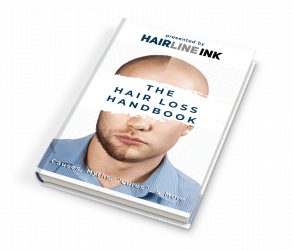Hair loss is a problem that affects many people, and while genetics and hormones play a significant role in hair loss, stress can also significantly impact your hair. Whether it’s the result of a traumatic event or just the daily stress of modern life, stress can lead to temporarily increased shedding and a condition called telogen effluvium.
Understanding the Science of Stress and Hair Loss
Stress can take a toll on our bodies in many ways, and hair loss is no exception. Stress can increase hair loss by triggering hormones like cortisol. Cortisol is known as the “stress hormone” and regulates many of our body’s functions, including our metabolism and immune system. When cortisol levels rise due to stress, it can increase inflammation, which can cause hair follicles to shrink and hair growth to slow down.
In addition to cortisol, stress can also affect the levels of other hormones, such as androgens, responsible for regulating hair growth. When androgen levels become imbalanced due to stress, it can lead to various hair loss conditions, including male-pattern baldness and female-pattern hair loss.
It’s important to note that stress can also cause hair loss indirectly. For example, stress can lead to unhealthy habits such as overeating, smoking, and excessive drinking, contributing to hair loss. Stress can also cause us to neglect self-care routines, such as brushing and washing our hair, which can lead to hair damage and loss over time.
Common Stressors that Contribute to Hair Loss
Stress can come from various sources, and some of them can significantly impact your hair health. Some of the most common stressors that can contribute to hair loss include:
Physical Stress:
Physical stress on your hair can cause it to break or fall out. This stress can come from hairstyles that pull on your hair, excessive heat styling, and even chemical treatments.
Emotional Stress:
Emotional Stress can cause hair loss by affecting hormone levels in your body. This type of stress can come from things like job loss, the death of a loved one, or financial difficulties.
Medical Stress:
Medical Stress can also contribute to hair loss. This type of stress can come from surgery, illness, or certain medications.
Psychological Stress:
Psychological Stress can also have a negative impact on your hair health. This type of stress can come from anxiety, depression, and insomnia.
It’s essential to remember that hair loss due to stress is typically temporary and will usually grow back once the stress has passed. However, if the stress continues for an extended period, it could lead to permanent hair loss. To prevent hair loss, manage your stress levels. This can include practicing relaxation techniques, getting enough sleep, and seeking support from friends and family. Additionally, consider seeking help from a mental health professional if your stress levels significantly affect your daily life.
Strategies for Managing Stress and Preventing Hair Loss
Stress is a natural part of life. Still, when it becomes chronic and lasts for an extended period, it can severely impact our physical and mental health, including hair loss. To prevent hair loss caused by stress, finding effective ways to manage stress and maintain good overall health is crucial. Here are some strategies for managing stress and preventing hair loss:
- Exercise Regularly: Yoga or running can reduce stress and improve mood by releasing endorphins. Additionally, exercise can help improve blood flow to the scalp, which is essential for healthy hair growth.
- Practice Relaxation Techniques: Relaxation techniques like meditation, deep breathing, and progressive muscle relaxation can help calm the mind and reduce stress. Incorporating these techniques into your daily routine can be a simple yet effective way to manage stress.
- Get Enough Sleep: Sleep is essential for overall health, and lack of sleep can significantly increase stress levels. Aim to get 7-9 hours of sleep per night to help reduce stress and promote healthy hair growth.
- Maintain a Healthy Diet: A well-balanced diet is essential for maintaining good overall health and can help reduce stress levels. Eating a diet rich in vitamins and minerals, particularly vitamins B and C, can help support hair health and prevent hair loss caused by stress.
- Limit Alcohol and Caffeine Intake: Reducing alcohol and caffeine intake can help prevent stress-related hair loss. To reduce stress levels and avoid hair loss, limit alcohol and caffeine intake.
- Seek Professional Help: If stress is becoming unmanageable and impacting your daily life, it may be necessary to seek professional help. Talking to a therapist or counselor can help you work through stress and find effective ways to manage it.
By incorporating these strategies into your daily routine, you can reduce stress levels and prevent hair loss caused by stress. Remember, it’s crucial to prioritize your mental and physical health, and managing stress is an essential part of maintaining overall well-being.
Conclusion
Stress can significantly impact hair loss, and it’s essential to recognize the signs and take steps to manage it. Whether you’re dealing with temporary hair loss or a more permanent condition, you can take steps to minimize the impact of stress on your hair. By understanding the science and implementing effective strategies to manage stress, you can take control of your hair health and live a healthier, happier life.












